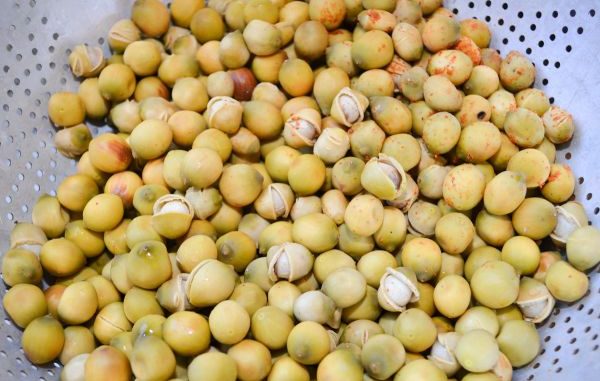
The literal interpretation from Cajun French to English for “gran à voler” is “grain that flew,” apparently because the ripe seeds are supposed to shoot out of the pods.
Where this came from is hard to decipher because, as the seeds ripen, the pod gradually nods over until its openings face the water and the seeds simply drop from the pods.
A total of 37 different names have been recorded in different parts of the country for the plant, including yuanquapin, water chinquapin, duck acorn, rattlenut, alligator button and monaca nut.
Properly called the American lotus and scientifically named Nelumbo lutea, the plant sports the largest flower native to North America. Its huge lily pad-like leaves either float on top of the water or stick up on a sturdy stem out of the water.
Each flower blooms for a couple of days. After insects pollinate the flower, the petal falls off and the center, which looks like a miniature shower head, begins to swell in size as its seeds develop.
While we eat the plant’s seeds today as a treat, early Indians of the eastern portion of North America relied on them as an important food source. They ate almost every portion of the plant, including the tuber-like roots that have a sweet potato-like taste.
These Native Americans would wade in the mud and pull them up with hooked sticks. Some they peeled and cooked fresh. Others they dried for use in the winter.
Although lotus plants produce up to 85,000 seeds per acre, they spread by their roots more than by seed. With enough room, a patch can grow 45 feet in each direction each summer.
Some anglers who find the flowers and plants attractive make the mistake of planting a few tubers in their private ponds. The plants will utterly dominate the pond in a very short time, making fishing difficult to impossible.
When a seed does sprout, it takes about six years before the plant grows enough to start blooming. The seed has a tough shell on it, and seeds up to 400 years old have been sprouted.
